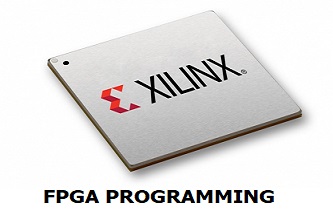ECSA Releases 2025 Skills Strategy Report
The European Chips Skills Academy (ECSA) has recently unveiled its 2025 Skills Strategy Report, shedding light on the magnitude of the semiconductor workforce deficit in Europe. Prepared by DECISION Etudes & Conseil and overseen by SEMI Europe, the report presents updated data that underscores the tightening skills pipeline in the region.
The report emphasizes the mounting pressure on chipmakers, design firms, universities, and training institutions, emphasizing the critical importance of workforce development alongside fab capacity and supply-chain resilience.
Challenges in the Semiconductor Workforce
Europe is grappling with a growing disparity between the demand for semiconductor skills and the available talent pool. The industry is particularly concerned about its aging workforce, as nearly 30% of current employees are expected to retire by 2030. Meanwhile, the influx of graduates in relevant fields is increasing by less than 1% annually.
This divergence is forecasted to result in an annual shortage of approximately 10,800 skilled workers across the semiconductor value chain, spanning design, equipment engineering, manufacturing, and downstream services.
“The 2025 ECSA Skills Strategy Report provides a comprehensive overview of the talent landscape within Europe’s semiconductor sector,” remarked Laith Altimime, President of SEMI Europe. “The findings underscore the magnitude of the unprecedented challenge we are facing and the urgency for action. This report emphasizes the necessity for collaboration among industry stakeholders, policymakers, and educational institutions to cultivate a skilled workforce crucial for sustaining Europe’s technological aspirations.”
Diversification of Skill Requirements and Emerging Job Roles
The analysis draws on insights from over 130 experts representing industry, academia, and training bodies. A key takeaway is the evolving nature of the semiconductor workforce, which is increasingly interdisciplinary.
Aside from traditional fab and equipment positions, companies are now seeking specialists in fields like system architecture, verification, cybersecurity, and AI-driven hardware development. Many of the most challenging roles to fill today lie at the intersection of hardware and software proficiencies.
“The 2025 edition of the Skills Strategy Report clearly indicates that Europe’s semiconductor talent dilemma has entered a new phase,” noted Léo Saint-Martin, Senior Consultant at DECISION Etudes & Conseil. “Addressing this issue necessitates more than short-term fixes. Enhancing collaboration between educational institutions and industry, and aligning curricula with evolving technological demands, will be crucial in ensuring a steady supply of qualified professionals capable of driving innovation and growth across Europe’s semiconductor landscape.”
Future Prospects for Europe’s Semiconductor Skills Agenda
The release of the report coincides with the ongoing implementation of the EU Chips Act, which aims to boost investments in manufacturing capacity and supply-chain initiatives. However, workforce development remains a bottleneck in this scenario. The report offers regional breakdowns of skills gaps and presents tailored recommendations for industry players, training providers, and policymakers.
The complete 2025 Skills Strategy Report can be accessed on the ECSA website. It furnishes a comprehensive overview of current and future workforce requirements, along with actionable strategies designed to enhance Europe’s long-term competitiveness in the semiconductor sector.
Semi












